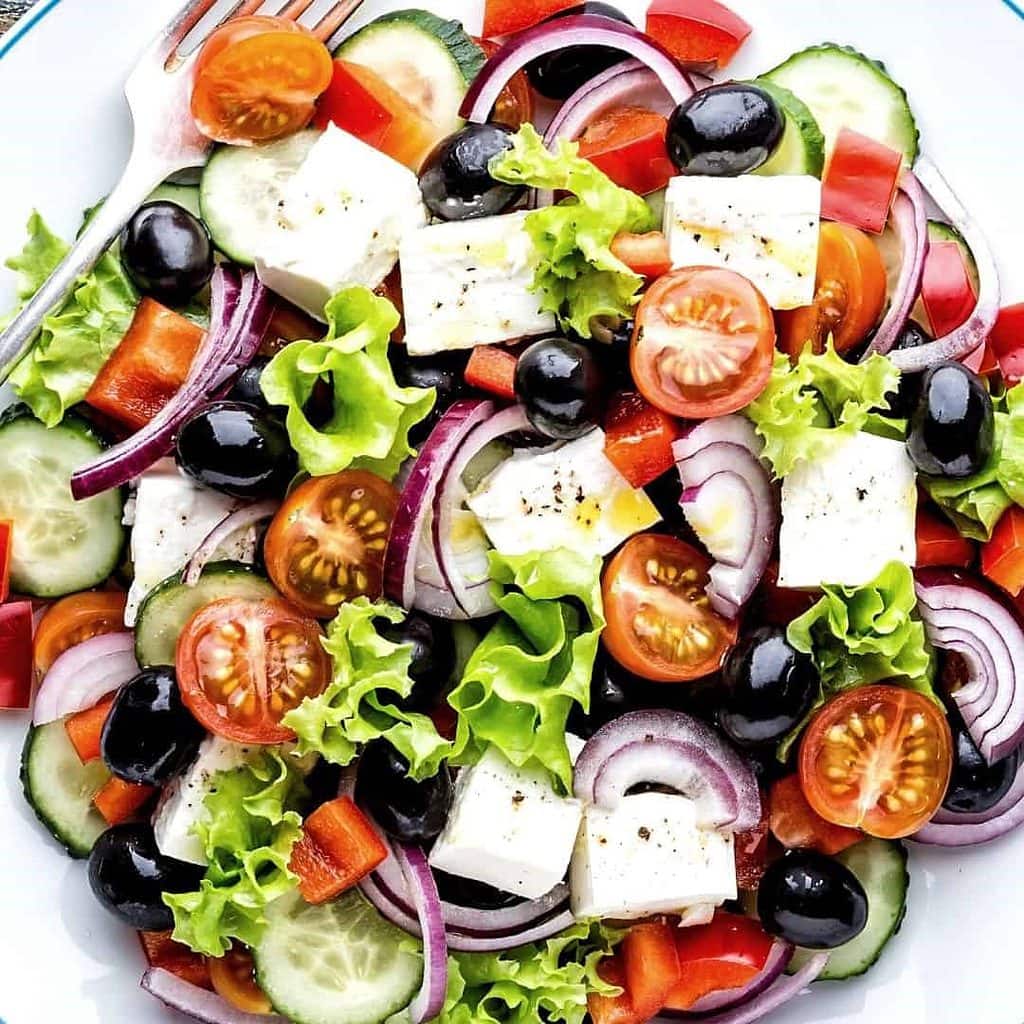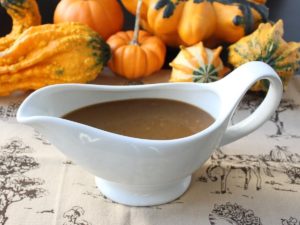Mediterranean Diet Recipes With Extra Virgin Olive Oil For A Healthy Thanksgiving
How you can bring the health benefits of extra virgin olive oil to your Thanksgiving feast and add some colour at the same time with this wonderful Greek salad A Greek salad is a beautiful and bright dish to bring together the best of Mediterranean flavors: crisp romaine lettuce, juicy tomatoes, piquant peppers, cucumber, red … Read more
Purchase Evoo
-
Amount
-
Time
-
Course
Starters & Salads
How you can bring the health benefits of extra virgin olive oil to your Thanksgiving feast and add some colour at the same time with this wonderful Greek salad
A Greek salad is a beautiful and bright dish to bring together the best of Mediterranean flavors: crisp romaine lettuce, juicy tomatoes, piquant peppers, cucumber, red onion, and tangy crumbled feta and Kalamata olives. And of course the vinaigrette dressing. Using olive oil in Mediterranean recipes is almost essential and your dishes will be even tastier if you use a high quality oil like Morocco Gold.
Greek salad is not only Greece’s most popular salad, it has now become one of the world’s most loved, and for a very good reason. Traditional Greek salad, also known as Xoriatiki, is packed with vitamins and minerals that are proven to help maintain a healthy body and mind. Although these days there are many variations, an authentic Greek salad features tomatoes, cucumbers, red onion, olives, Feta, oregano and olive oil. The combination of these ingredients is a simple way to add key vitamins and minerals to your everyday diet.
If you are new to the the flavors of the Mediterranean, take a look at our post about getting started on the Mediterranean diet, lots of information to help you understand how a Med diet works and whether it is for you.
Ingredients
Total
- Chopped romaine lettuce
- Thinly sliced red onion
- Kalamata olives, pitted and sliced
- Sliced pepperoncinis
- Seeded, chopped tomatoes
- Sliced cucumber
- Crumbled feta cheese
Greek Vinaigrette
- 1/4 cup extra virgin olive oil
- 1/4 cup red wine vinegar
- 1 tsp. Dijon mustard
- 1 tsp. garlic powder
- 1 tsp. dried oregano
- 1 tsp. dried basil
- 3/4 tsp. onion powder
- Salt and freshly ground black pepper, to taste (about 1/4 tsp. each)
Instructions
Total
- In a large salad bowl, combine the Romaine, onion, olives, peppers, tomatoes, cucumber and cheese.
- Prepare dressing, drizzle over top, toss, and serve.
- Pour vinegar and mustard into a food processor. Turn on low and slowly add the olive oil to emulsify. Add the garlic powder, oregano, basil, onion powder and salt and pepper.
- Pulse a few more times to incorporate. (Can be done by hand in a large bowl, adding the olive oil slowly while whisking vigorously to emulsify.)
- Drizzle over salad and serve. Keeps well at room temperature.
From The Larder
Why Is Greek Salad With Extra Virgin Olive Oil So Good For You
Greek salad is low-calorie and nutrient-dense, also providing you with a healthy dose of vitamins A and C, as well as potassium and iron. It also contains phytonutrients and antioxidants, which reduces the risk of health problems such as heart disease and cancer. Here’s why the ingredients in a Greek salad are so good for you.
Tomatoes are the major dietary source of the antioxidant lycopene, which has been linked to many health benefits, including reduced risk of heart disease and cancer. They are also a great source of vitamin C, potassium, folate and vitamin K.
Cucumbers are low in calories but contain many important vitamins and minerals, as well as a high water content. Eating cucumbers may lead to many potential health benefits, including weight loss, balanced hydration, digestive regularity and lower blood sugar levels.
Oregano health benefits include reducing infections, preventing damage to cells by free radicals, treatment of common cold, treating menstrual cramps, preventing cancer, relieving inflammation and killing intestinal parasites. Other benefits includes combating bacteria, supporting heart health, supporting the body with nutrients, supporting weight loss and improving digestion.
Extra Virgin Olive oil is rich in vitamins, it has antioxidant properties, so it might help prevent or reverse damage from cancer-causing ultraviolet radiation and it moisturizes and fights bacteria. Olive oil also reduces brain inflammation and is said to help fight off Alzheimer’s disease.
Onions contain small amounts of calcium, iron, folate, magnesium, potassium and antioxidants.
Olives are very high in vitamin E and other powerful antioxidants. Studies show that they are good for the heart, and may protect against osteoporosis and cancer.
Feta is mainly made from sheep or goat milk (often combined), Feta cheese is a nutrient-rich option and a deliciously flavoured dairy. Feta’s nutritional overview includes significant protein; calcium; B-complex vitamins riboflavin, vitamin B6, B12, and pantothenic acid; vitamin A; iron; phosphorus; zinc; and many trace minerals (selenium, magnesium, potassium, copper, and manganese).
Important Disclaimer
The information provided on this website is for general informational purposes only. All content, including text, graphics, images, and information, is presented as an educational resource and is not intended as a substitute for professional medical advice, diagnosis, or treatment.
Please consult with a qualified healthcare provider before making any decisions or taking any action based on the information you find on this Website. Do not disregard, avoid, or delay obtaining medical or health-related advice from your healthcare provider because of something you have read on this Website.
If you think you may have a medical emergency, call your doctor, go to the nearest emergency department, or call emergency services immediately. We are not responsible for any adverse effects resulting from your use of or reliance on any information or content on this Website.
By using this Website, you acknowledge and agree to this disclaimer in full.



